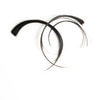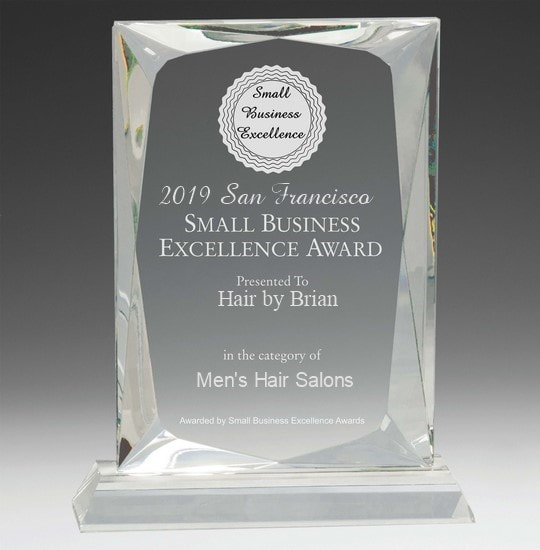|
There are many things that affect whether or not a certain hairstyle suits you. Your face shape is one. How you style it is another. If you’re considering a top knot, whether you’re actually a practicing samurai warrior should be a third. But the main one is the hair itself. The genetic makeup of your locks determines what you can do with it and how obedient it is when styling. And while some men (terribly annoying sorts) have a full, shiny mop that could rival Samson’s locks, others have to work hard to keep their follicles looking semi-presentable and semi-present. If you want to do your crowning glory justice, then you need to get personal and give your hair the bespoke treatment. That’s why we’ve tapped the advice of industry experts to find out what you can do with your hair type, no matter what your mama gave you. Select your hair types for the best haircut and products for you: Thick Hair | Asian Hair | Fine Hair | Wavy Hair | Afro Hair | Unruly Hair | Thinning Hair These hairstyling tips are from FashionBeans
When I wake up every day, I find many strands of hair on my pillow. I also have the habit of cleaning my house every other day since hair is responsible for half of the dirt and grime on floorboards. Just two years ago, I had never even thought that my lustrous hair would one day fall out or turn grey. Given the thick patches my parents had before they turned 50, the reason for my hair loss being genetic didn't seem very likely. Many of my colleagues, some of whom are years younger than I am, have the same concern. The pressure from working in the news cycle may be a reason, but we are not alone. A recent survey by the China Association of Health Promotion and Education reveals that China's hair loss population stands at a whopping 250 million, most of them between 20 and 40 years old. Among this population, men accounted for 160 million – that's some 23 percent of Chinese men. The majority of them are reportedly starting to deal with hair loss at 30, two decades earlier than the previous generation. "When we make the clinical rounds, we can see more young patients with thinning hair, so it does exist," Yang Shuxia, a dermatologist at the Peking University First Hospital, told CGTN. A white paper by Alibaba Health Information Technology Company last year showed that the post-1990s generation accounted for 36.1 percent while the post-1980s made up 38.5 percent of the hair-shedding population. Baldness is becoming increasingly common among university students. According to a study at Tsinghua University in late 2017, 60 percent of students reported thinning hair and 40 percent claimed to notice receding hairlines. The survey, which polled 4,000 students, defined stress, insomnia and irregular living patterns as major causes for going bald. Another survey, conducted in 2015, concluded that the bald patches on Chinese men added up to one quarter of Beijing's land area. This "bald wave" has spawned a new lucrative business – the hair loss treatment industry. Statistics from health departments show that consumption by China's urban residents on hair care is rising each year at a fast clip of 30 percent. In the next decade, the country is expected to see an annual growth rate of 260 percent in the business of hair nutrition, restoration and transplantation. Take a closer look at the consumer data: On JD.com, sales of hair-growing shampoos surged by 136 percent in the first quarter of 2018 year on year. Another e-commerce giant Taobao reported in 2017 that hair products, including vibrating hair brushes, herbal remedies, Minoxidil and adhesive hair pieces, were among its top 40 bestselling lines, over 40 percent of sales of which were made by consumers under 30 years old. Actually, many millennials are aware of the reasons for hair loss. Many of them interviewed by CGTN attribute the condition to irregular daily routines, staying up late and stress amid hectic schedules at work and pressure from a high cost of living in a metropolis.
"Excessive anxiety can, in a way, interrupt the normal growth cycle of hair," said Yang Shuxia. However, she underlined that if you notice excessive hair loss, you don't have to panic. Instead, try to notice if you've undergone significant changes for the past few months such as experiencing constant anxiety, signs of fever, irregular daily routines or rapid weight loss, and then wait for three months to see if those symptoms go away. If so, then hair loss may be due to external factors – notably a scalp disorder called "telogen effluvium," which could be managed with changes to habit. If that's not the case, then you should consider seeing a doctor. Reasons for hair loss can be many, from genetic to environmental. Pattern hair loss is inherited while alopecia is due to problems with your immune system, but loss as a result of stress or other habits are not permanent. For many in the fast-paced modern workplace, it's simply a part of growing up. Less anxiety may help bring your lush look back. This article is from CGTN 5/1/2019 0 Comments As the Chair Turns - May 2019Hi Hi,
I hope you've survived your allergies that resulted from the spectacular super bloom we had. Spring is definitely here and a reminder it’s allergy season. I have “seasonal” allergies but here in the Bay Area something is always in bloom so all that means is it’s allergy season pretty much all year round. Thank goodness for local honey, though. A couple tablespoons daily helps manage my allergies. It’s not a cure all when the pollen is really high but it sure helps all those other days. You should give it a try if you’re battling allergies. I came a cross an interesting article regarding an “epidemic” hair loss happening with millennials. To be honest, this isn’t just happening with millennials. Today’s stresses with jobs, finances, and the cost of living are common with all of us. I’ve shared many articles about the affects of stress and hair loss. What’s interesting is this article focuses on a certain age population, the millennial, and how the affects of these stresses are showing up in a younger individuals. I knew iron, or the lack of it, had an affect on hair growth. There really isn’t a simple resolution for an iron deficiency. That said, I did not know that how our body stores iron is even more difficult to diagnose and treat. I found an article regarding low ferritin and hair loss. I hope it answers more questions than it raises. Over the last few months I’ve included articles about CBD oil and its benefits. This month I have an article for you on how long CBD will stay in your system. I’m learning about CBD oil all the time and I hope, along the way, you are doing your own research as well. Did you know that for a Himba woman, her hair is her power? Hairstyles play a significant role within the Himba community and reflect marital status, age, wealth, and rank within the group. Check out the article I have for you. Inside this month you'll also find articles on the best hairstyle for your hair type, styling a perfect messy bun, the influence of k-pop on colour trends, taking better naps and more. Check it all out below. Enjoy! |
Hair by BrianMy name is Brian and I help people confidently take on the world. CategoriesAll Advice Announcement Awards Balayage Barbering Beach Waves Beauty News Book Now Brazilian Treatment Clients Cool Facts COVID 19 Health COVID 19 Update Curlies EGift Card Films Follically Challenged Gossip Grooming Hair Care Haircolor Haircut Hair Facts Hair History Hair Loss Hair Styling Hair Tips Hair Tools Health Health And Safety Healthy Hair Highlights Holidays Humor Mens Hair Men's Long Hair Newsletter Ombre Policies Procedures Press Release Previous Blog Privacy Policy Product Knowledge Product Reviews Promotions Read Your Labels Recommendations Reviews Scalp Health Science Services Smoothing Treatments Social Media Summer Hair Tips Textured Hair Thinning Hair Travel Tips Trending Wellness Womens Hair Archives
April 2025
|
|
Hey...
Your Mom Called! Book today! |
Sunday: 11am-5pm
Monday: 11am-6pm Tuesday: 10am - 6pm Wednesday: 10am - 6pm Thursday: By Appointment Friday: By Appointment Saturday: By Appointment |






 RSS Feed
RSS Feed